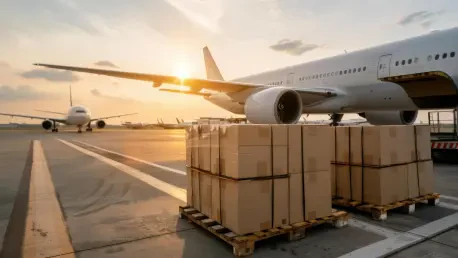Lufthansa Cargo’s strategic maneuver to integrate Rome as its fifth hub and acquire a significant stake in ITA Airways signals a transformative wave in European logistics. The pressing question for companies that depend on agile supply chains is: What does this new venture mean for their operations and competitiveness?
A Dive into the Strategic Shift
Detailing Lufthansa Cargo’s expansion involves understanding recent pivotal moves: the acquisition of a 41% stake in ITA Airways and Rome’s new role as a hub in its network. This development is set against a backdrop of global trade and transportation, where enhanced connectivity and streamlined processes remain paramount. Such an advancement suggests a far-reaching ripple effect in global logistics that cannot be ignored.
Southern Europe’s Emerging Role in Logistics
Rome’s integration as a hub isn’t just a logistical adjustment—it’s a strategic enhancement for Southern European markets. Shippers can expect improved connectivity, allowing more efficient transportation and access to wider markets. Historical data shows that previous expansions, like Lufthansa’s hub setups in Frankfurt and Munich, led to increased market reach and efficiency, delivering a promising outlook for Rome’s addition and its effect on regional commerce.
Logistics Experts Weigh in
Logistics experts acknowledge the significance of Lufthansa Cargo’s expansion, predicting shifts in industry standards and enhancements in customer service. Voices from industry leaders highlight positive outcomes following similar expansions, illustrating how increased network capacity translates to more comprehensive service delivery. These accounts provide a glimpse into the promising transformations awaiting shippers as they adapt to this potential-filled integration.
Strategic Decisions for Shippers
For shippers keen to leverage these advancements, identifying strategic approaches is vital. Utilizing the improved capacity and connectivity, shippers can optimize logistics processes, expand market reach, and position themselves to seize new opportunities in Southern Europe. Consider revising logistics strategies to exploit this network expansion, ensuring that operations are both cost-effective and resilient in the evolving landscape.
With tools and routes newly available, shippers have a unique chance to refine their operations. Actions taken now may well shape their success in a more interconnected and competitive market. Future logistical strategies will depend heavily on adapting to this change—the capability to navigate new dynamics results not from chance but strategy.
Ensuring readiness for Lufthansa Cargo’s expansion to take full advantage of the increased capacity is crucial for forward-thinking companies. This milestone potentially offers both efficiency improvements and broader opportunities, presenting profound implications for shippers navigating the intricacies of global trade.









